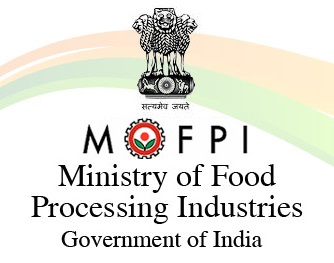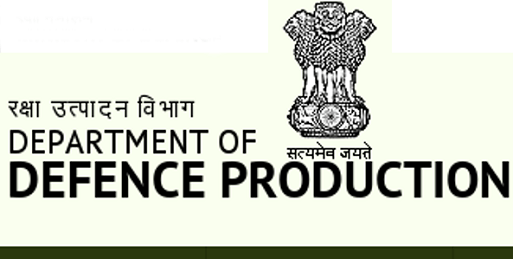The Prime Minister, Shri Narendra Modi inaugurated the Commonwealth Legal Education Association (CLEA) – Commonwealth Attorneys and Solicitors General Conference (CASGC) 2024 at Vigyan Bhawan in New Delhi . The theme of the conference is “Cross-Border Challenges in Justice Delivery” and will deliberate on important issues pertaining to law and justice like judicial transition and the ethical dimensions of legal practice; executive accountability; and revisiting modern-day legal education, among others.
Addressing the gathering, the Prime Minister expressed delight in inaugurating the CLEA – Commonwealth Attorneys and Solicitors General Conference which has witnessed the participation of leading legal minds from across the world and welcomed all international guests on behalf of 1.4 billion Indian citizens. “I urge you to witness incredible India to the fullest”, he asserted.
Noting the presence of African representatives at the conference, the Prime Minister highlighted India’s special relationship with the African Union and expressed pride that the group became a part of G20 during India’s presidency. He said that it will go a long way in addressing the aspirations of the people of Africa.
Recalling his interaction with legal fraternities across the world in the past few months, the Prime Minister mentioned the diamond jubilee celebrations of the Supreme Court of India a few days ago and the International Lawyers Conference held in Sept at Bharat Mandapam. He underlined that such interactions become a medium to celebrate the work of the justice system as well as create opportunities for better and more efficient justice delivery.
Emphasizing the importance of justice in Indian thoughts, the Prime Minister mentioned an ancient Indian saying: ‘न्यायमूलं स्वराज्यं स्यात्’, meaning justice is at the root of independent self-governance, and without justice, even the existence of a nation is not possible.
Touching upon the theme of today’s conference – Cross-Border Challenges in Justice Delivery, the Prime Minister emphasized the relevance of the topic in today’s rapidly changing world and mentioned the need for multiple nations to come together to ensure justice delivery. “When we collaborate, we can understand each other’s system better”, the Prime Minister continued, “Greater understanding brings greater synergy, synergy boosts better and faster justice delivery.” Therefore, Prime Minister Modi said that such platforms and conferences are important.
Referring to the cooperation and interdependence of systems like that of air and maritime traffic control, the Prime Minister said we need to expand cooperation to investigation and justice delivery. He underlined that cooperation can take place while respecting each other’s jurisdiction as when we work together, jurisdiction becomes a tool to deliver justice without delaying it.
Throwing light on the radical changes in the nature and scope of crime in recent times, PM Modi pointed out the vast networks created by criminals across countries and their usage of the latest technology both in funding and operations. He also drew attention to the fact that economic crimes in one region are being used to fund activities in other regions, and the challenges of the rise of cryptocurrency and cyber threats. Stressing that the issues of the 21st century cannot be tackled with a 20th-century approach, the Prime Minister underscored the need to rethink, reimagine and reform including modernizing legal systems, making the system more flexible and adaptable.
The Prime Minister highlighted that reform cannot take place without making the justice system more citizen-centric as ease of justice is the pillar of justice delivery. Recalling his time as the chief minister of Gujarat, he said that setting up evening courts enabled masses to attend hearings after their work hours – a step which gave justice but also saved time and money, benefitting hundreds of people.
Explaining the system of Lok Adalats or ‘people’s court’, the Prime Minister said that it provides a settlement mechanism for small cases related to public utility services and is a pre litigation service where thousands of cases are resolved while ensuring ease of justice delivery. He suggested carrying out discussions on such initiatives that can add great value to the world.
“Legal education is a key instrument in boosting justice delivery”, the Prime Minister said, noting that both passion and professional competence are introduced to young minds through education. Giving insights into realizing the potential of women in every domain, PM Modi suggested making each domain inclusive at the educational level. He said that an increase in the number of women in law schools will lead to an increase in the number of women in the legal profession. He also suggested exchanging ideas on how more women can be brought into legal education.
The Prime Minister emphasized the need for young legal minds with diverse exposure while asserting that legal education needs to adapt to changing times and technologies. He said that a focus on understanding the latest trends in crimes, investigation and evidence would be helpful.
Highlighting the need to help young legal professionals with greater international exposure, PM Modi called upon law universities to strengthen exchange programmes between countries. Giving the example of the world’s only university dedicated to forensic science located in India, the Prime manager suggested students, law faculty and even judges from various countries be helped to explore short courses here. He also suggested developing countries work together to get greater representation in many international institutions related to justice delivery while also assisting students in finding internships, thereby enabling the legal systems to learn from international best practices.
PM Modi pointed out that India’s legal system was inherited from colonial times, but the last few years have witnessed a record number of reforms. He mentioned the abolition of thousands of obsolete laws from colonial times, some of which had the potential to become tools to harass people, and underlined that it has boosted ease of living and ease of doing business. “India is also modernizing laws to reflect the present realities”, Shri Modi said, highlighting that the 3 new legislations have replaced more than 100-year-old colonial criminal laws. “Earlier, the focus was on punishment and penal aspects. Now, the focus is on ensuring justice. Therefore, citizens have a sense of assurance rather than fear”, he remarked.
Underlining that technology can also have a positive impact on justice systems, the Prime Minister said that in the last few years, India has used drones to map places and provide clear property cards to rural people, reducing disputes, the possibility of litigation, and load on the justice system, making it more efficient. He said digitalisation has also helped many courts in the country, taking proceedings online, which has helped people access justice even from far-away locations. He said India is happy to share its learnings in this regard with other countries and we are also keen to learn about similar initiatives in other countries.
Concluding the address, the Prime Minister asserted that every challenge in justice delivery can be addressed if the one shared value of passion for justice is shared among nations. “May this conference strengthen this spirit. Let us build a world where everyone has access to timely justice and none is left behind”, Shri Modi concluded.
Chief Justice of India, Dr Justice D Y Chandrachud, Union Minister for Law and Justice, Shri Arjun Ram Meghwal, Judge of Supreme Court of India, Justice Surya Kant, Attorney General for India, Dr R Venkataramani, Solicitor General of India, Shri Tushar Mehta and President of Commonwealth Legal Education Association Prof. Dr S Sivakumar were present on the occasion.
Background | This Conference witnessed the participation of Attorney Generals and Solicitors from the Commonwealth nations spanning the Asia-Pacific, Africa, and the Caribbean along with various international delegations. The conference serves as a unique platform by offering a forum for interaction among different stakeholders in the Commonwealth legal fraternity. It also includes an exclusive round table conference tailored for Attorneys and Solicitors general aiming to develop a comprehensive roadmap to address the challenges in legal education and transnational justice delivery.





